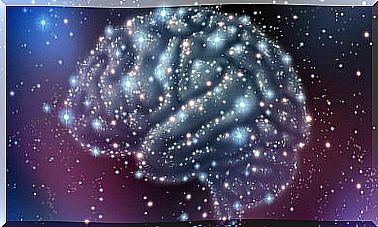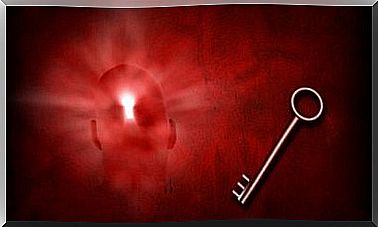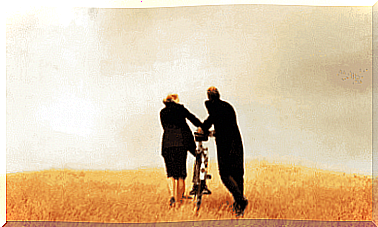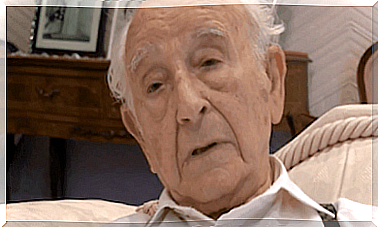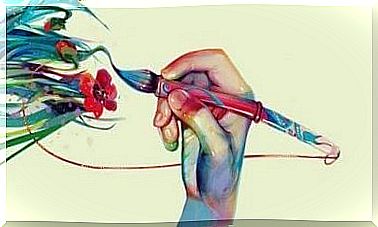The Negativity Bias According To Science
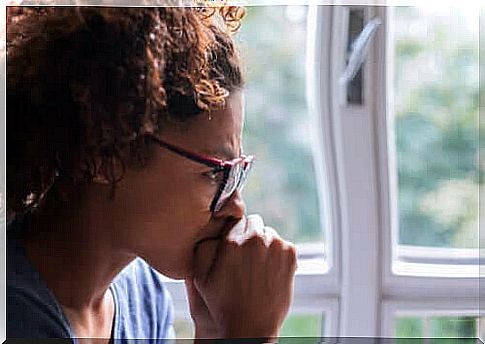
Negativity bias refers to the human tendency to think about what is bad, instead of reflecting on what is good. Therefore, our pleasant and positive memories are overcome by silly, unpleasant encounters. The value we give to all that is negative is what we are going to talk about today.
The negativity bias explains the reasons why traumatic events and negative experiences stay with us longer and seem to affect us more than positive ones. It seems that these more or less unpleasant experiences tend to become more intense in our minds. Let’s go deeper into it.
The evolutionary basis for negativity bias

On many occasions, bad news has a much greater impact than good news. And even simple criticism can affect us much more than compliments.
In the book Buddha’s brain , neuroscientist Rick Hanson gives an explanation, approved by many other scientists, about the origin of the evolutionary nature of this negativity bias.
According to Hanson, negativity bias is a consequence of the development that our ancestors learned to make intelligent decisions in high-risk situations. These kinds of decisions were the ones that helped them survive long enough to guarantee the next generation. It was all a matter of life or death.
Thus, individuals who lived in accordance with potentially dangerous events were more likely to survive. Over time, the brain structure adapted very slowly to be more aware of negative information, instead of positive.
Various studies seem to agree that negativity bias develops in early childhood. It is around the first year when babies’ attention shifts from positive facial expressions and focuses more on negative stimuli.
Biological basis
Psychologist John Cacioppo conducted some studies on the neurotic processing of negativity bias. Here they found that the brain’s response to sensory, cognitive and negative motor stimuli causes a much greater activation than positive events. Especially in the cerebral cortex.
As a result of the above, the negativity bias favors and influences us to focus on the negative around us, even when we make decisions.
It also seems to have a big influence on the motivation we complete a task with. It is interesting that we are more motivated by avoiding a negative experience than by a task that will provide a positive incentive.
The evolutionary approach suggests that this is just a trend we are aiming for and it is about avoiding the damage caused by negative situations. That it is simply a way in which our brain tries to keep us safe and protected.
How does the negativity bias affect our lives?
Although it seems that the negativity bias helped people to survive, the truth is that it has quite undesirable effects in our everyday lives. We should at least be aware of them.
In addition to influencing decisions and risks we are willing to take, this bias also seems to have a major impact on the way we perceive other people. This is because it can cause us to think and expect the worst of others in our intimate relationships.
We believe in fake news if it is negative
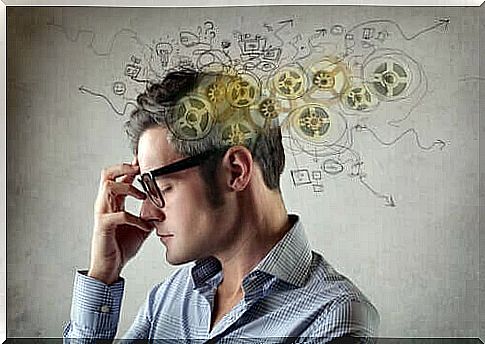
The negativity bias has consequences that are as different as those that make it more likely that we give more credibility to negative news than to positive ones. This type of news not only attracts us more. We also give them greater validity, although such news may be false.
It also affects our values and ideologies. In fact, it seems to have a lot to do with our tendency to maintain tradition and security in the face of ambiguous stimuli and changes we consider threatening.
As you can see, it is wise to reflect on your tendency towards negative bias in most situations. Pay attention to its presence, especially if you want to make better decisions.
